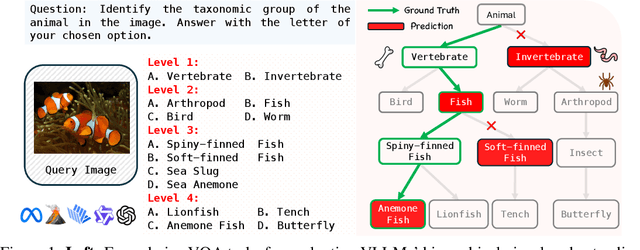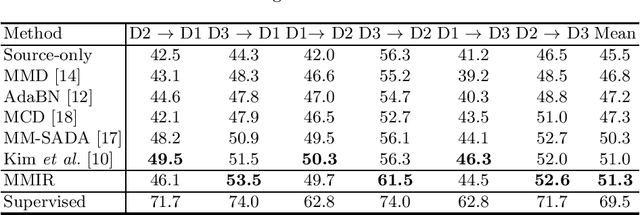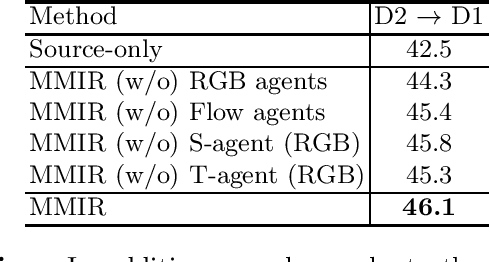Yuan Qing
Vision LLMs Are Bad at Hierarchical Visual Understanding, and LLMs Are the Bottleneck
May 30, 2025



Abstract:This paper reveals that many state-of-the-art large language models (LLMs) lack hierarchical knowledge about our visual world, unaware of even well-established biology taxonomies. This shortcoming makes LLMs a bottleneck for vision LLMs' hierarchical visual understanding (e.g., recognizing Anemone Fish but not Vertebrate). We arrive at these findings using about one million four-choice visual question answering (VQA) tasks constructed from six taxonomies and four image datasets. Interestingly, finetuning a vision LLM using our VQA tasks reaffirms LLMs' bottleneck effect to some extent because the VQA tasks improve the LLM's hierarchical consistency more than the vision LLM's. We conjecture that one cannot make vision LLMs understand visual concepts fully hierarchical until LLMs possess corresponding taxonomy knowledge.
Multi-modal Instance Refinement for Cross-domain Action Recognition
Nov 24, 2023



Abstract:Unsupervised cross-domain action recognition aims at adapting the model trained on an existing labeled source domain to a new unlabeled target domain. Most existing methods solve the task by directly aligning the feature distributions of source and target domains. However, this would cause negative transfer during domain adaptation due to some negative training samples in both domains. In the source domain, some training samples are of low-relevance to target domain due to the difference in viewpoints, action styles, etc. In the target domain, there are some ambiguous training samples that can be easily classified as another type of action under the case of source domain. The problem of negative transfer has been explored in cross-domain object detection, while it remains under-explored in cross-domain action recognition. Therefore, we propose a Multi-modal Instance Refinement (MMIR) method to alleviate the negative transfer based on reinforcement learning. Specifically, a reinforcement learning agent is trained in both domains for every modality to refine the training data by selecting out negative samples from each domain. Our method finally outperforms several other state-of-the-art baselines in cross-domain action recognition on the benchmark EPIC-Kitchens dataset, which demonstrates the advantage of MMIR in reducing negative transfer.
 Add to Chrome
Add to Chrome Add to Firefox
Add to Firefox Add to Edge
Add to Edge